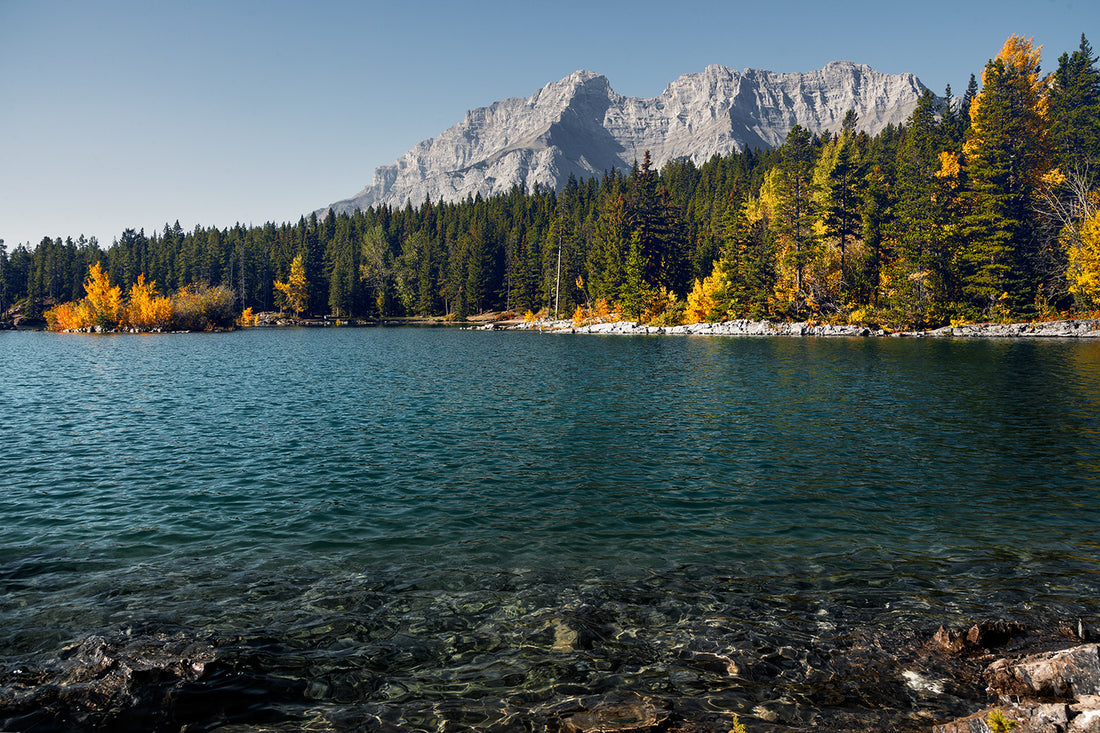It's no secret that the past year has been filled with heartbreak, pain, and injustice. But amidst all of this, there have also been moments of hope and stories of innovators that inspire us and remind us that progress is possible. And in the face of the devastating news from the UN's IPCC report, which stated that many of the impacts of human-caused climate change will be unavoidable, people from all walks of life have come together to work towards positive environmental change.
So let's get started with our top uplifting climate stories of 2022.
Congress Passes Biggest Climate Bill in History

Image: Senate Majority Leader Charles E. Schumer (D-N.Y.) gives a thumbs up as he leaves the Senate chamber after passage of the Inflation Reduction Act on Aug. 7. (Drew Angerer/Getty Images)
On August 7th, the US Senate passed the largest and most significant bill to address climate change in US history. The Inflation Reduction Act includes $369 billion to support low-carbon energy and measures to help Americans adapt to worsening climate conditions.
Among its provisions are consumer tax rebates on electric vehicles and energy-efficient appliances, federal loans for companies that manufacture solar panels and large batteries, and financial support for farming practices that remove carbon from the atmosphere. These measures are projected to cause total US emissions in 2030 to be 21% lower than they would be otherwise, according to a Princeton University analysis. While this cut falls short of the goal of cutting emissions in half by 2030, compared to 2005 levels, it puts that ambition within reach for the first time and is a step towards achieving net-zero emissions by 2050.
The Inflation Reduction Act breaks with Democrats' longstanding approach to climate policy, which has centered on penalizing carbon emissions through taxes or regulation. Instead, the bill aims to incentivize the transition to clean energy through market forces and investment.
The bill also makes it cheaper for consumers to go green, with rebates on rooftop solar panels, electric vehicles, and energy-saving appliances. An analysis by Resources for the Future estimates that an electric grid less exposed to fossil fuel price fluctuations will save the average household about $200 per year on electric bills.
The Inflation Reduction Act is expected to create 9 million new jobs and boost the country's GDP by almost a percentage point by 2030, according to a University of Massachusetts analysis. It also includes provisions for offshore drilling on 60 million acres, but these are offset by the clean energy provisions, which are expected to avoid at least 24 times as many emissions.
The Inflation Reduction Act marks a significant milestone in the fight against climate change in the United States.
Patagonia Founder Gives Away the Company

Image:Yvon Chouinard ( Fabian Marell / Washington Post)
Yvon Chouinard, the founder of outdoor apparel company Patagonia, has given the company away rather than selling it or taking it public. Mr. Chouinard, his wife, and two adult children have transferred their ownership of Patagonia, valued at about $3 billion, to a specially designed trust and a nonprofit organization.
The trust, known as the Patagonia Purpose Trust, will oversee the company to ensure that it runs a socially responsible business and donates its profits to combat climate change and protect undeveloped land. The trust will be overseen by members of the Chouinard family and their closest advisers.
The other 98% of Patagonia's shares, its common shares, were donated to a newly established nonprofit called the Holdfast Collective, which will receive all of the company's profits and use them to combat climate change. The Holdfast Collective is a 501(c)(4) organization, which allows it to make unlimited political contributions. Patagonia has already donated $50 million to the Holdfast Collective and expects to contribute another $100 million this year.
A new law in California requires food waste to be composted

California's new compost law, Senate Bill 1383, will go into effect on January 1st, 2022. The law is part of a statewide effort to reduce emissions of short-lived climate pollutants and requires all jurisdictions in California (cities, counties, or special districts that provide solid waste collection services) to provide organic waste collection services to all residents and businesses.
It also requires all California residents to separate organic waste, including food, green material, landscape and pruning waste, organic textiles and carpets, lumber, wood, paper products, printing and writing paper, manure, biosolids, digestate, and sludges, from other garbage. While the requirements go into effect on January 1, 2022, no fines will be imposed on residents or jurisdictions for failure to comply.
In future years, residents may be subject to fines of up to $500 per day and jurisdictions will face penalties of up to $10,000 per day for failing to provide organic waste collection services for residents. The law marks a major change in how California processes food waste, as it is the first statewide initiative to require all state residents to separate organic waste.
New Report Reveals That Solar & Wind Power Can Limit Global Warming To 1.5℃

Image: Teb Nad / Shutterstock
According to a report from independent climate think tank Ember, solar and wind power can grow enough to limit global warming to 1.5℃. To reach this goal, their average compound growth rate of 20% must be maintained until 2030. The report also found that solar generation rose 23% globally in 2021, while wind supply increased by 14%. Together, these renewable sources accounted for 10.3% of global electricity generation, a 1% increase from 2020.
The Netherlands, Australia, and Vietnam had the highest growth rates for renewables, with around 10% of their electricity demand being switched from fossil fuels to wind and solar over the past two years. However, the report also found that coal-fired power generation saw its fastest growth since at least 1985, increasing by 9% in 2021. So while renewable energy has the potential to change the tide against climate change, it certainly won’t be without adversaries.
EPA opens civil rights investigations over pollution in Cancer Alley
The Environmental Protection Agency (EPA) has announced that it will be conducting a series of civil rights investigations into state agencies in Louisiana to determine whether permits granted in the highly polluted industrial corridor known as Cancer Alley have violated the rights of Black citizens. The investigations will focus on Louisiana's environment department (LDEQ) and the state's health department over permits approved in St. John parish, St. James parish, and elsewhere in the region.
The inquiries will examine whether the health department violated the rights of Black residents and schoolchildren living near a neoprene facility in St. John by allegedly failing to provide sufficient information about health threats and recommendations on how to reduce exposure to pollution. The investigations will also examine permits related to a proposed plastics site in St. James and a grain terminal in St. John. The announcement has been welcomed by environmental advocates and researchers who have argued that the permitting processes in the region are racially biased and do not adequately involve community feedback.
The EU Has Approved A €28 Billion German Renewable Energy Scheme
The European Commission announced on 21st Dec that it had approved the German government’s 28 billion euro ($29.69 billion) renewable energy support scheme, which aims to expand wind and solar power use rapidly. The policy, which will replace an existing renewables support scheme, will be in effect until 2026 and will help Germany meet its target of producing 80% of its renewable energy by 2030.
The European Commission stated that the scheme was “necessary and appropriate” to promote renewable energy and reduce global warming emissions. The scheme pays renewable energy producers a premium on top of the market price for selling their power. In addition, small generators may be eligible for a feed-in tariff, providing a guaranteed electricity price.
Expansion of clean energy production will be critical to meeting Germany’s goal of eliminating net greenhouse gas emissions by 2045 and partially filling the energy supply gap left by Russia’s decision to cut off most of the gas it sends to Europe this year.
Some EU countries have criticized Berlin’s response to Europe’s energy crisis. Concerns centered on Germany’s broader plan to spend up to 200 billion euros in subsidies to shield consumers and businesses from rising energy costs – a sum that many other countries cannot afford and that some argue will distort competition in the European Union’s single market.
The Commission stated that Berlin’s renewable state aid was limited to the “bare minimum” and included safeguards to reduce competition distortions. Germany will also phase out existing support for renewable producers in times of negative power prices by 2027 to avoid compensating companies twice.













